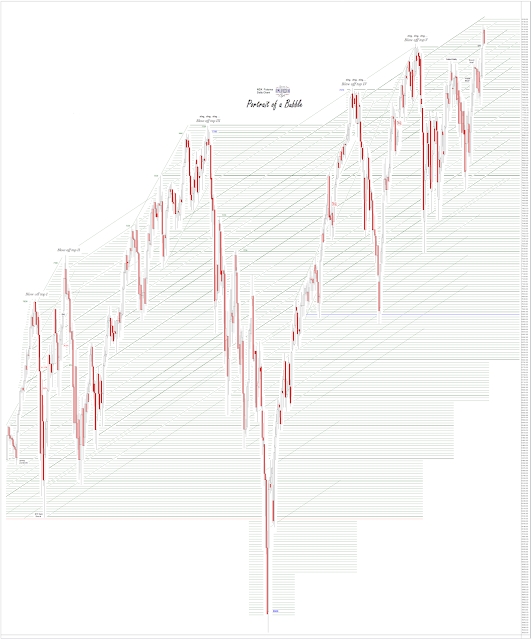"Moral hazard is the probability that a party insulated from risk will behave differently from the way they would behave if fully exposed to the risk. Moral hazard arises because an individual or institution does not bear the full consequences of its actions, and therefore has a tendency to act with increasing recklessness, literally 'without reckoning." It also encourages the rise to power of the sociopath in the affected organizations.
It is difficult to explain moral hazard to tenured professors or the pampered princes of bureaucracy, who beat the drum with their silver spoons in support of shifting the risk of loss to the public every time that Wall Street falls into one of its own schemes and blows itself up.
It is a lesson that the average person learns by the age of twelve and relearns, sometimes spectacularly, at least once in young adulthood. If you do something wrong there can be bad outcomes, and you will pay the price and penalty. Unfortunately there is a small but powerful oligopoly of privilege that is trying to project themselves onto the global stage while believing that they are immune to ordinary consequence, and have become addicted to the notion that 'others must pay' for their failures.
Moral hazard comes from rewarding bad behaviour in markets with wristslaps and bailouts. It is a danger to the economy and to the public."
Jesse, Moral Hazard, 22 March 2008
"When you won, you divided the profits amongst you, and when you lost, you charged it to the bank. You tell me that if I take the deposits from the bank and annul its charter I shall ruin ten thousand families. That may be true, gentlemen, but that is your sin!
Should I let you go on, you will ruin fifty thousand families, and that would be my sin! You are a den of vipers and thieves. I have determined to rout you out, and by the Eternal, (bringing his fist down on the table) I will rout you out."
Andrew Jackson, The original minutes of the Philadelphia bankers sent to meet with President Jackson February 1834, from Andrew Jackson and the Bank of the United States (1928) by Stan V. Henkels
Alphabet, the tech giant formerly known as Google, weighed on the tech stocks today.
Most other market were lightly traded ahead of the FOMC announcement tomorrow.
The financiers sparkled as Jamie Dimon has apparently persuaded Mr. Mnuchin, the Treasury Secretary, to further lighten up their regulations on capital.
They might also considered forbidding stock buybacks. That would loosen up some funds for loans.
There will be a general election in the UK on December 12 apparently.
The market is expecting a 25 bp cut from the FOMC tomorrow. And then we will see what they say about the future.
Have a pleasant evening.






































